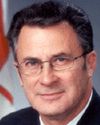Mr. Speaker, I rise on a point of order relating to a finance committee meeting I attended yesterday, an excellent committee, as I am reminded. This committee dealt with Bill S-9, a Senate bill referred to the committee and on which we heard evidence.
During the evidence in the committee meeting it became clear that the bill imposes expenditures on the Government of Canada. The amount of money involved per year, as was pointed out in the committee and which evidence I could lay before you, Mr. Speaker, involves perhaps hundreds of millions of dollars. It was part of budgetary provisions dating back to 1992, budget papers from 1992 and 1993. A provision of the bill also is retroactive to November 10, 1988, which requires an expenditure of public funds.
Mr. Speaker, I refer you to two decisions made in this Chamber and contained in the books of Speaker Lamoureux, which are truly the decisions that mark the difference between the powers of the Commons and the powers of the Senate. I do not have the decisions of Justice Lamoureux before me, but one of them is on page 174 and the other 175.
The decision on page 174 was made on November 12, 1969 when the Senate approved a bill for the dissolution of the Dominion Coal Corporation at that time. An MP by the name of Baldwin stood in the Chamber and objected that this involved an expenditure of public funds.
The Speaker at the time set aside a period in which he heard arguments as to whether it was an expenditure of public funds. After listening to the arguments he said no, this bill must come in as per Standing Order 62 at that time, which is Standing Order 79(1) today, which is that royal recommendation is required for any expenditure of public money.
The second decision was made on June 12, 1972, again by Speaker Lamoureux. It was the same instance where a government bill came through the Senate. An objection was launched at that time that although the bill did not involve an immediate expenditure of public funds, it committed the government to an expenditure in the future.
The ruling at that time was that yes, according to Standing Order 63, presently Standing Order 80(1) under Beauchesne's sixth edition, if a bill involves an expenditure of money then it cannot be brought in through the Senate.
My objection is according to Standing order 79(1), which says quite clearly that it is the crown that demands, the Commons that grants and the Senate that accedes to that grant, it is the prerogative of the House of Commons, not the Senate, and it must be done with royal recommendation by the executive, by the crown. It cannot be done through the Senate. Standing Order 80(1) states quite clearly that the Senate's only role is to accede to such a request. It cannot even amend such a request.
The evidence is quite clear that on the one hand the expenditure of public money involved is that it reduces by 50 per cent the tax on any profits made by U.S. multinationals in Canada. That is the expenditure, approximately $130 million to $135 million per year. This is supported, incidentally, by the Reform Party and the Bloc wholeheartedly.
The expenditure involves in the last clause of the bill a retroactive provision in the case of payments that involve the payment by the Government of Canada of a tax credit for anybody who was subjected to the estate tax in the United States. If people who had property of over $600,000 in the U.S. are subjected to the estate tax, Canada will provide a tax credit to offset that on their foreign based income. That is dated back to November 10, 1988, which would impose an immediate expenditure on the Government of Canada. The rest of it would impose an expenditure, a loss in tax expenditures for all time to come.
Mr. Speaker, it is not that the bill would be defeated by your ruling, because all of the political parties in this Chamber support the bill. I am saying this violates the privileges of the Canadian House of Commons as seen in precedent and as seen in our standing orders. This should come back and be presented in the correct manner.












